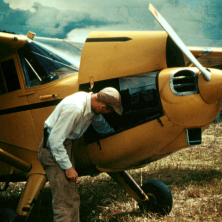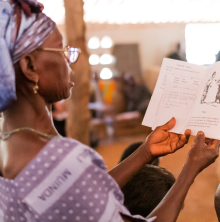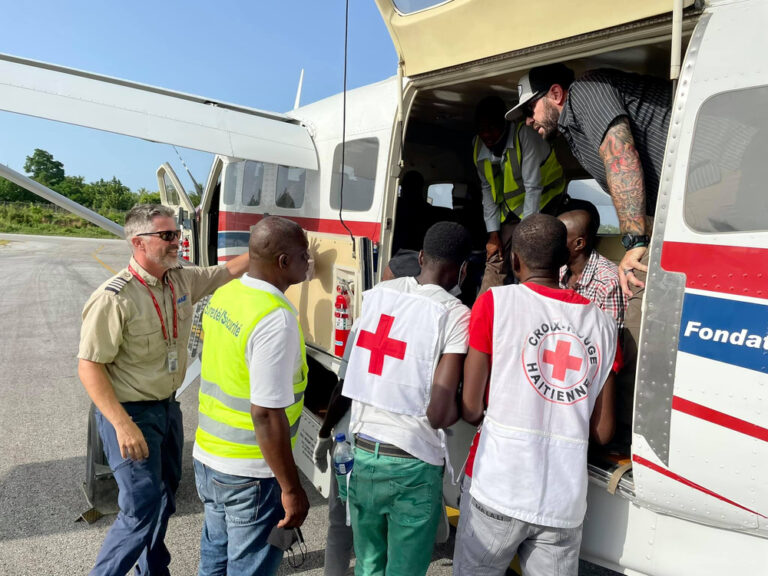A unique perspective on MAF Missionaries and what is often misunderstood about missionary service.
“There is this assumption that missionaries are more spiritual or somehow more holy,” said Robyn Coffman, a licensed Christian counselor. “That is really dangerous.”
Stories of “missionary heroes” dot the shelves of church libraries, pastors’ bookshelves, and Bible college classrooms. It is hard to read the accounts of these incredible men and women and not walk away with a sense of awe. There can be no questioning the faithfulness these people exhibit by leaving all they know to live and serve in a difficult place for the sake of the Gospel. However, Robyn is concerned that placing missionaries on a pedestal can put them in a difficult position.

Robyn recently spent time with MAF missionaries in Papua, Indonesia—even spent a night in one of the remote, interior villages MAF serves. Robyn and her husband, Joey, already had a thriving counseling ministry, 10/10 Ministries, that started after they were at Fuller Theological Seminary and realized statistics showed many of their peers who would go on to serve as pastors would face incredible pressure and leave ministry altogether. After Robyn’s trip to Indonesia, she and Joey decided to broaden their work with missionaries.
A Difficult Task
MAF missionaries often do not serve in easy-to-live locations. Combine cross-cultural strains with a full ministry load, family life, and the physical and spiritual suffering of the isolated people they serve, and it is understandable that stress and fatigue can be overwhelming—even if you are a spiritual giant.
Because of the support of people like you, MAF is able to strive to take care of their missionaries. Part of that involved a recent opportunity in Papua, Indonesia, that Becky and Nathan Fagerlie who serve with MAF in Nabire arranged with their home church, Heights Church in Prescott, Arizona. They invited Robyn and a few other women from their church to lead a retreat in Papua for MAF female missionaries and other women from like-minded organizations who work in remote villages and are served by MAF airplanes. The ladies from the church even spent a night in the villages to better understand the pressures these missionaries face.
“We had a wonderful retreat in Papua,” said Becky. “Robyn spent time with each of the women one-on-one to do counseling. That was huge for a lot of the women.”
“There is this invisible demand that others put on missionaries and that they put on themselves when they are placed on a pedestal,” explains Robyn. “Exhaustion inevitably comes from not accomplishing what they feel called to—most are givers by nature so they strive hard. It can be a very lonely place.”
Support the Mission? Care for the Soul
“What impressed me was how right the work the missionaries were doing felt—the joy, the satisfaction,” said Robyn. “Clearly it is hard for them to live in an isolated place like Papua. And just because they are missionaries doesn’t mean they are exempt from struggles in their marriages, anxiety, or depression—but the rightness of it is really what struck me.”
Because of the sacrifices of missionaries and because of the support of people like you, lives are being changed by the Gospel in isolated places. You play a vital role in this work and in the way you make it possible for MAF staff and their families to live and thrive in difficult places.
When asked what she would say to people like you who support missionaries, Robyn said, “It is important for you to care about the missionaries’ souls as much as their ministry call, or more. If the missionaries don’t have that support, they will not be able to carry out their ministry very long.”
This story was featured in FlightWatch magazine. To read the full issue, click here:



